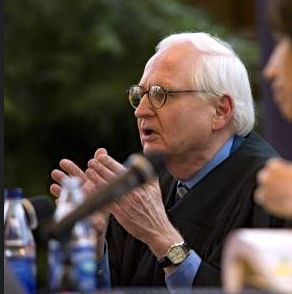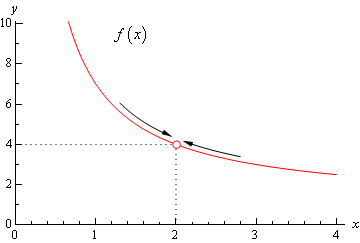 Several crawfishermen sued about the effects of canal dredging on the Atchafalaya Basin fisheries. As to one defendant company, the Fifth Circuit affirmed summary judgment in its favor, reviewing each of the documents cited by plaintiffs and finding that none raised a genuine issue of material fact as to actual dredging activity by that company, on the pipelines at issue in this case. As to another, the Court reversed on procedural grounds, finding that the district court should have considered a deposition transcript and responses to requests for admissions offered by the plaintiffs when (1) their proffer had a foundation in the terms of the case management order, (2) the evidence was probative, and (3) it was information obtained from that defendant. In re Louisiana Crawfish Producers, No. 16-30353 (March 28, 2017). (The opinion notes that crawfish are known by several other names, including “yabbies,” a tidbit that was not known to this author.)
Several crawfishermen sued about the effects of canal dredging on the Atchafalaya Basin fisheries. As to one defendant company, the Fifth Circuit affirmed summary judgment in its favor, reviewing each of the documents cited by plaintiffs and finding that none raised a genuine issue of material fact as to actual dredging activity by that company, on the pipelines at issue in this case. As to another, the Court reversed on procedural grounds, finding that the district court should have considered a deposition transcript and responses to requests for admissions offered by the plaintiffs when (1) their proffer had a foundation in the terms of the case management order, (2) the evidence was probative, and (3) it was information obtained from that defendant. In re Louisiana Crawfish Producers, No. 16-30353 (March 28, 2017). (The opinion notes that crawfish are known by several other names, including “yabbies,” a tidbit that was not known to this author.)
Monthly Archives: March 2017
Defendant hosted a website with a public forum called “HairTalk.” Plaintiffs sued for copyright infringement when celebrity photos, to which they owned the rights, were posted by third-party users on HairTalk without their consent. The Fifth Circuit affirmed summary judgment for Defendant, adopting
a website with a public forum called “HairTalk.” Plaintiffs sued for copyright infringement when celebrity photos, to which they owned the rights, were posted by third-party users on HairTalk without their consent. The Fifth Circuit affirmed summary judgment for Defendant, adopting  the “volitional conduct” requirement for direct infringement cases, and observing: “[I]t does not make sense to adopt a rule that could lead to the liability of countless parties whose role in the infringement is nothing more than setting up and operating a system that is necessary for the functioning of the Internet.” BWP Media USA v. T&S Software, No. 16-10510 (March 27, 2017).
the “volitional conduct” requirement for direct infringement cases, and observing: “[I]t does not make sense to adopt a rule that could lead to the liability of countless parties whose role in the infringement is nothing more than setting up and operating a system that is necessary for the functioning of the Internet.” BWP Media USA v. T&S Software, No. 16-10510 (March 27, 2017).
 An architecture firm held a large judgment against a bankruptcy debtor, and contended that the failure of the debtor’s insurer to object to that claim barred further dispute about the insurer’s liability. The Fifth Circuit disagreed, concluding that “in this no asset bankruptcy case, nothing in the court proceedings required claims allowance, no notice was provided to parties in interest to object to claims, and no bankruptcy purpose would have been served by the bankruptcy court’s adjudicating [the firm’s claim.” Kipp Flores Architects v. Mid-Continent Casualty Co., No. 16-20255 (March 24, 2017).
An architecture firm held a large judgment against a bankruptcy debtor, and contended that the failure of the debtor’s insurer to object to that claim barred further dispute about the insurer’s liability. The Fifth Circuit disagreed, concluding that “in this no asset bankruptcy case, nothing in the court proceedings required claims allowance, no notice was provided to parties in interest to object to claims, and no bankruptcy purpose would have been served by the bankruptcy court’s adjudicating [the firm’s claim.” Kipp Flores Architects v. Mid-Continent Casualty Co., No. 16-20255 (March 24, 2017).
 Reviewing the requirements for the application of judicial estoppel, the Fifth Circuit reversed the resolution of a case about insurance coverage of attorneys fees in Aldous v. Darwin Nat’l Assurance Co., No. 16-10537 (March 16, 2017). The Court found that the district court misapplied judicial estoppel when it “unjustifiably read the [key] supplemental declaration in isolation,” and made several “small antecedent errors” leading up to that ruling, including its reading of the relevant earlier decision.
Reviewing the requirements for the application of judicial estoppel, the Fifth Circuit reversed the resolution of a case about insurance coverage of attorneys fees in Aldous v. Darwin Nat’l Assurance Co., No. 16-10537 (March 16, 2017). The Court found that the district court misapplied judicial estoppel when it “unjustifiably read the [key] supplemental declaration in isolation,” and made several “small antecedent errors” leading up to that ruling, including its reading of the relevant earlier decision.
 Air Evac contended that the Airline Deregulation Act preempted Texas workers compensation laws about reimbursement for air-ambulance services. This claim led to a dispute about the scope of Eleventh Amendment liability and the landmark Constitutional case of Ex parte Young, 209 U.S. 123 (1908). In a methodical analysis of Young’s history and purpose, the Fifth Circuit concluded that Air Evac could sue: “[T]he balance-billing prohibition works in concert with state defendants’ implementation of the reimbursement system, serving as a backstop against alternative methods of fee collection. State defendants’ pervasive authority to oversee and enforce Texas’ workers’-compensation system satisfies the Ex parte Young exception.” Air Evac EMS, Inc. v. State of Texas, No. 16-51023 (March 20, 2017).
Air Evac contended that the Airline Deregulation Act preempted Texas workers compensation laws about reimbursement for air-ambulance services. This claim led to a dispute about the scope of Eleventh Amendment liability and the landmark Constitutional case of Ex parte Young, 209 U.S. 123 (1908). In a methodical analysis of Young’s history and purpose, the Fifth Circuit concluded that Air Evac could sue: “[T]he balance-billing prohibition works in concert with state defendants’ implementation of the reimbursement system, serving as a backstop against alternative methods of fee collection. State defendants’ pervasive authority to oversee and enforce Texas’ workers’-compensation system satisfies the Ex parte Young exception.” Air Evac EMS, Inc. v. State of Texas, No. 16-51023 (March 20, 2017).
 Adams LLC, formed in July 2010, bought a number of assets from Adams Produce Company, Inc., and sought to prosecute a Deepwater Horizon claim for damages suffered by Adams Inc. Unfortunately, “[a]lthough substantially alll of Adams Inc.’s assets
Adams LLC, formed in July 2010, bought a number of assets from Adams Produce Company, Inc., and sought to prosecute a Deepwater Horizon claim for damages suffered by Adams Inc. Unfortunately, “[a]lthough substantially alll of Adams Inc.’s assets  and liabilities were transferred as part of the transaction, it is undisputed that Adams Inc. retained certain assets and liabilities. Adams Inc. and Adams LLC are two distinct entities, and the asset transfer that occurred here was not just a change in form.” BP Exploration v. Claimant ID 100169608, No. 16-30482 (March 8, 2017, unpublished).
and liabilities were transferred as part of the transaction, it is undisputed that Adams Inc. retained certain assets and liabilities. Adams Inc. and Adams LLC are two distinct entities, and the asset transfer that occurred here was not just a change in form.” BP Exploration v. Claimant ID 100169608, No. 16-30482 (March 8, 2017, unpublished).
 The Fifth Circuit affirmed a summary judgment for the defendants in the FCA case of Abbott v. BP Exploration & Production; after describing the alleged fact issues about “whether engineers approved the various stages of construction of the Atlantis [offshore oil platform],” it noted: “Rarely does the pursuit of an individual’s FCA claims lead to an investigation requested by Congress. But that is the case with these Plaintiffs, whose insistence on the alleged issues with the Atlantis led to Congressional hearings, an investigation by a federal agency, and the [De[artment of the Interior] Report,” which “found no grounds to suspend the operation of the Atlantis or revoke BP’s designation as an operator.” No. 16-20028 (March 14, 2017).
The Fifth Circuit affirmed a summary judgment for the defendants in the FCA case of Abbott v. BP Exploration & Production; after describing the alleged fact issues about “whether engineers approved the various stages of construction of the Atlantis [offshore oil platform],” it noted: “Rarely does the pursuit of an individual’s FCA claims lead to an investigation requested by Congress. But that is the case with these Plaintiffs, whose insistence on the alleged issues with the Atlantis led to Congressional hearings, an investigation by a federal agency, and the [De[artment of the Interior] Report,” which “found no grounds to suspend the operation of the Atlantis or revoke BP’s designation as an operator.” No. 16-20028 (March 14, 2017).
 The Clarion-Ledger reports that Judge E. Grady Jolly of Mississippi will retire on his 80th birthday in October 2017, creating another vacancy on the Fifth Circuit for President Trump to fill. The same paper has a good description of the process for filling the vacancy. Judge Jolly has served the Fifth Circuit with distinction for 35 years; his skill and grace will be greatly missed.
The Clarion-Ledger reports that Judge E. Grady Jolly of Mississippi will retire on his 80th birthday in October 2017, creating another vacancy on the Fifth Circuit for President Trump to fill. The same paper has a good description of the process for filling the vacancy. Judge Jolly has served the Fifth Circuit with distinction for 35 years; his skill and grace will be greatly missed.
 In an interesting parallel to the ongoing litigation about travel bans (which most recently produced a District of Hawaii opinion granting a TRO), the Fifth Circuit denied en banc review in Defense Distributed v. U.S. Dep’t of State, which affirmed a preliminary injunction about the use of 3-D printing technology to make certain firearms. A dissent observes: “Certainly there is a strong public interest in national security. But there is a paramount public interest in the exercise of constitutional rights, particularly those guaranteed by the First Amendment . . . ” No. 15-50759 (March 15, 2017).
In an interesting parallel to the ongoing litigation about travel bans (which most recently produced a District of Hawaii opinion granting a TRO), the Fifth Circuit denied en banc review in Defense Distributed v. U.S. Dep’t of State, which affirmed a preliminary injunction about the use of 3-D printing technology to make certain firearms. A dissent observes: “Certainly there is a strong public interest in national security. But there is a paramount public interest in the exercise of constitutional rights, particularly those guaranteed by the First Amendment . . . ” No. 15-50759 (March 15, 2017).
 Tower Credit garnished the debtor’s wages. In defense of a later preference action, Tower argued that its garnishment was effective when served (taking it outside the preference period), not when the debtor in fact received money. The Fifth Circuit disagreed: “The combination of Supreme Court precedent and the overwhelming weight of persuasive authority applying §
Tower Credit garnished the debtor’s wages. In defense of a later preference action, Tower argued that its garnishment was effective when served (taking it outside the preference period), not when the debtor in fact received money. The Fifth Circuit disagreed: “The combination of Supreme Court precedent and the overwhelming weight of persuasive authority applying §  547(e)(3) make clear that a debtor’s wages cannot be transferred until they are earned. Thus, we hold that a creditor’s collection of garnished wages earned during the preference period is an avoidable transfer made during the preference period even if the garnishment was served prior to that period.” Tower Credit v. Schott, No. 16-30274 (March 13, 2017).
547(e)(3) make clear that a debtor’s wages cannot be transferred until they are earned. Thus, we hold that a creditor’s collection of garnished wages earned during the preference period is an avoidable transfer made during the preference period even if the garnishment was served prior to that period.” Tower Credit v. Schott, No. 16-30274 (March 13, 2017).
 In affirming sanctions for vexatious litigation in connection with bankruptcy proceedings, the Fifth Circuit noted, in particular: “Appellants’ . . . repeated attempts to litigate issues that have been conclusively resolved against them or that they had no standing to assert and by their unsupported and multiple attempts to remove . . . the trustee.” Carroll v. Abide, No. 16-30996 (March 13, 2017).
In affirming sanctions for vexatious litigation in connection with bankruptcy proceedings, the Fifth Circuit noted, in particular: “Appellants’ . . . repeated attempts to litigate issues that have been conclusively resolved against them or that they had no standing to assert and by their unsupported and multiple attempts to remove . . . the trustee.” Carroll v. Abide, No. 16-30996 (March 13, 2017).
 Attorney Martinez sued another law firm (“HLG”) for various torts related to the firm contacting his clients about alleged overbilling. The firm asserted absolute immiunity as a defense and the Fifth Circuit agreed, in a fact-specific holding, that the evidence “demonstrate[s] that the allegedly tortious statements at issue in this case were made in relation to a proposed arbitration and are therefore absolutely privileged under Texas law.” The firm already represented two Martinez clients in connection with the potential arbitration; the new clients did not originate contact with the firm; and all of them ultimately retained the firm. Martinez v. Hellmich Law Group, PC, No. 16-50305 (March 8, 2017, unpublished). This case joins a line of similar holdings in recent years in favor of attorney immunity.
Attorney Martinez sued another law firm (“HLG”) for various torts related to the firm contacting his clients about alleged overbilling. The firm asserted absolute immiunity as a defense and the Fifth Circuit agreed, in a fact-specific holding, that the evidence “demonstrate[s] that the allegedly tortious statements at issue in this case were made in relation to a proposed arbitration and are therefore absolutely privileged under Texas law.” The firm already represented two Martinez clients in connection with the potential arbitration; the new clients did not originate contact with the firm; and all of them ultimately retained the firm. Martinez v. Hellmich Law Group, PC, No. 16-50305 (March 8, 2017, unpublished). This case joins a line of similar holdings in recent years in favor of attorney immunity.
 The owner of the Golden Nugget casino in Lake Charles withheld $18.7 million from payments to its general contractor, who then filed a statutory lien (a “privilege” in Louisiana parlance) on the property. The relevant statute requires the contractor to file “within sixty days after the filing of the notice of termination or substantial completion of the work.” If “substantial completion” refers to an event, the contractor’s filing was not timely; if, however, it refers to a filing that certifies substantial completion, the contractor’s filing was timely, as the owner did not record such a certification. The Fifth Circuit concluded that, while the statute was ambiguous, the related provisions and the apparent industry practice supported the contractor’s position: “The [statute] places the burden on an owner to cut of potential claims when a contract has been recorded, whether it is a general contractor or a subcontractor.” Golden Nugget Lake Charles LLC v. W.G. Yates & Sons Constr. Co., No. 16-30496 (March 6, 2017).
The owner of the Golden Nugget casino in Lake Charles withheld $18.7 million from payments to its general contractor, who then filed a statutory lien (a “privilege” in Louisiana parlance) on the property. The relevant statute requires the contractor to file “within sixty days after the filing of the notice of termination or substantial completion of the work.” If “substantial completion” refers to an event, the contractor’s filing was not timely; if, however, it refers to a filing that certifies substantial completion, the contractor’s filing was timely, as the owner did not record such a certification. The Fifth Circuit concluded that, while the statute was ambiguous, the related provisions and the apparent industry practice supported the contractor’s position: “The [statute] places the burden on an owner to cut of potential claims when a contract has been recorded, whether it is a general contractor or a subcontractor.” Golden Nugget Lake Charles LLC v. W.G. Yates & Sons Constr. Co., No. 16-30496 (March 6, 2017).
 In Richard v. Anadarko Petroleum Corp., the Fifth Circuit required reformation of a contract on the grounds of mutual mistake, to the detriment of non-party Liberty Mutual, acknowledging that “[c]ourts must guard against parties’ ‘attempts to make an end-run around the parol-evidence rule,’ which forecloses the use of parol evidence to interpret unambiguous terms, ‘by framing [their] argument[s] as a request for reformation.” Here, reformation was appropriate even considering the effect on Liberty Mutual, given (1) its lack of reliance on the contract, (2) the general consistency of the terms in the reformed contract with industry practice, and (3) course of performance. No. 16-30216 (March 2, 2017).
In Richard v. Anadarko Petroleum Corp., the Fifth Circuit required reformation of a contract on the grounds of mutual mistake, to the detriment of non-party Liberty Mutual, acknowledging that “[c]ourts must guard against parties’ ‘attempts to make an end-run around the parol-evidence rule,’ which forecloses the use of parol evidence to interpret unambiguous terms, ‘by framing [their] argument[s] as a request for reformation.” Here, reformation was appropriate even considering the effect on Liberty Mutual, given (1) its lack of reliance on the contract, (2) the general consistency of the terms in the reformed contract with industry practice, and (3) course of performance. No. 16-30216 (March 2, 2017).
Feder al Insurance agreed to pay defense costs in ongoing commercial litigation against its insureds, subject to its position that under the policy, payment of defense costs deplete the policy limits. The relevant clause said: “[T]he Limit of Liability under the Fiduciary Coverage Section is $1 million, subject to a $1 million aggregate limit, and a $10,000.00 Retention, with Defnse Costs eroding or depleting those limits.” The Fifth Circuit agreed with Federal, rejecting arguments based on the limit potentially implicating conflict-of-interest concerns for counsel, and policy issues raised by applicable state statutes in the health care area. In sum: “Under Mississippi law, insurance policies are to be enforced according to their provisions.” Federal Ins. Co. v. Singing River Health System, Ni. 15-60774 (March 1, 2017).
al Insurance agreed to pay defense costs in ongoing commercial litigation against its insureds, subject to its position that under the policy, payment of defense costs deplete the policy limits. The relevant clause said: “[T]he Limit of Liability under the Fiduciary Coverage Section is $1 million, subject to a $1 million aggregate limit, and a $10,000.00 Retention, with Defnse Costs eroding or depleting those limits.” The Fifth Circuit agreed with Federal, rejecting arguments based on the limit potentially implicating conflict-of-interest concerns for counsel, and policy issues raised by applicable state statutes in the health care area. In sum: “Under Mississippi law, insurance policies are to be enforced according to their provisions.” Federal Ins. Co. v. Singing River Health System, Ni. 15-60774 (March 1, 2017).
 Litigation about the intellectual property rights to the name “Communicat-R” (here, applied to a specialized type of whiteboard) led to a jury trial. The Fifth Circuit affirmed, finding no abuse of discretion in this instruction: “Trademarks can be abandoned through non-use. A trademark is abandoned if it is proven by a preponderance of the evidence, that (1) the use of trademark was discontinued; and (2) an intent not to resume such use.” The Court rejected a request for additional language about “excusable nonuse,” finding that it would either be redundant or not entirely accurate in the context of this case. The Court also rejected sufficiency challenges to liability and damages, illustrating the operation of the federal standard for the grant of a new trial. Vetter v. McAtee, No. 15-20575 (March 1, 2017).
Litigation about the intellectual property rights to the name “Communicat-R” (here, applied to a specialized type of whiteboard) led to a jury trial. The Fifth Circuit affirmed, finding no abuse of discretion in this instruction: “Trademarks can be abandoned through non-use. A trademark is abandoned if it is proven by a preponderance of the evidence, that (1) the use of trademark was discontinued; and (2) an intent not to resume such use.” The Court rejected a request for additional language about “excusable nonuse,” finding that it would either be redundant or not entirely accurate in the context of this case. The Court also rejected sufficiency challenges to liability and damages, illustrating the operation of the federal standard for the grant of a new trial. Vetter v. McAtee, No. 15-20575 (March 1, 2017).